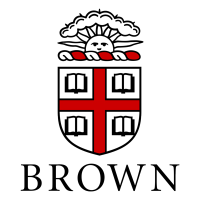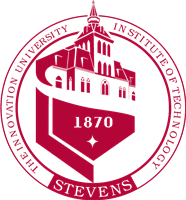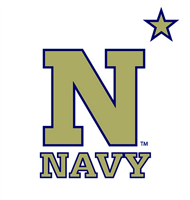What do they do?
Design underground or overhead wind farm collector systems and prepare and develop site specifications.
Also known as:
Engineer, Project Engineer, Turbine Engineer, Turbine Measurements Engineer, Utility Engineer, Wind Energy Consultant, Wind Farm Siting and Development Consultant, Wind Turbine Design Engineer
-
2.3%
Change
Ranks #43 in job growth rate490Job Openings
Ranks #6 in net job growth
-
Massachusetts Institute of Technology
Cambridge, MA
-
Dartmouth College
Hanover, NH
-
Brown University
Providence, RI
-
United States Naval Academy
Annapolis, MD
-
Stevens Institute of Technology
Hoboken, NJ
Looking for colleges that offer a specific major? Use the College Match Tool to find your best-matched schools and discover your estimated Net Price!
- Doctorate or Professional Degree (8%)
- Master's degree (26%)
- Bachelor's degree (50%)
- Associate's degree (6%)
- Some college, no degree (7%)
- High school diploma equivalent (4%)
- Less than high school diploma (1%)
Most Popular Majors that prepare Wind Energy Engineers
-
#1
-
Degrees Granted
8,235
-
Female Students
1,994
-
Male Students
6,241
-
Median Starting Salary
$64,763
-
-
#2
-
Degrees Granted
3,716
-
Female Students
978
-
Male Students
2,738
-
Median Starting Salary
$66,400
-
-
#3
-
Degrees Granted
2,771
-
Female Students
893
-
Male Students
1,878
-
Median Starting Salary
$64,763
-
-
#4
-
Degrees Granted
1,407
-
Female Students
443
-
Male Students
964
-
Median Starting Salary
$64,763
-
-
#5
-
Degrees Granted
1,114
-
Female Students
177
-
Male Students
937
-
Median Starting Salary
$64,763
-
People in this career often have these skills:
- Critical Thinking - Using logic and reasoning to identify the strengths and weaknesses of alternative solutions, conclusions, or approaches to problems.
- Reading Comprehension - Understanding written sentences and paragraphs in work-related documents.
- Mathematics - Using mathematics to solve problems.
- Judgment and Decision Making - Considering the relative costs and benefits of potential actions to choose the most appropriate one.
- Active Listening - Giving full attention to what other people are saying, taking time to understand the points being made, asking questions as appropriate, and not interrupting at inappropriate times.
- Writing - Communicating effectively in writing as appropriate for the needs of the audience.
- Speaking - Talking to others to convey information effectively.
- Complex Problem Solving - Identifying complex problems and reviewing related information to develop and evaluate options and implement solutions.
- Systems Analysis - Determining how a system should work and how changes in conditions, operations, and the environment will affect outcomes.
People in this career often know a lot about:
- Engineering and Technology - Knowledge of the practical application of engineering science and technology. This includes applying principles, techniques, procedures, and equipment to the design and production of various goods and services.
- Mathematics - Knowledge of arithmetic, algebra, geometry, calculus, statistics, and their applications.
- Design - Knowledge of design techniques, tools, and principles involved in production of precision technical plans, blueprints, drawings, and models.
- Physics - Knowledge and prediction of physical principles, laws, their interrelationships, and applications to understanding fluid, material, and atmospheric dynamics, and mechanical, electrical, atomic and sub-atomic structures and processes.
- English Language - Knowledge of the structure and content of the English language including the meaning and spelling of words, rules of composition, and grammar.
- Computers and Electronics - Knowledge of circuit boards, processors, chips, electronic equipment, and computer hardware and software, including applications and programming.
- Administration and Management - Knowledge of business and management principles involved in strategic planning, resource allocation, human resources modeling, leadership technique, production methods, and coordination of people and resources.
- Customer and Personal Service - Knowledge of principles and processes for providing customer and personal services. This includes customer needs assessment, meeting quality standards for services, and evaluation of customer satisfaction.
- Building and Construction - Knowledge of materials, methods, and the tools involved in the construction or repair of houses, buildings, or other structures such as highways and roads.
People in this career often have talent in:
- Deductive Reasoning - The ability to apply general rules to specific problems to produce answers that make sense.
- Written Comprehension - The ability to read and understand information and ideas presented in writing.
- Inductive Reasoning - The ability to combine pieces of information to form general rules or conclusions (includes finding a relationship among seemingly unrelated events).
- Mathematical Reasoning - The ability to choose the right mathematical methods or formulas to solve a problem.
- Number Facility - The ability to add, subtract, multiply, or divide quickly and correctly.
- Oral Comprehension - The ability to listen to and understand information and ideas presented through spoken words and sentences.
- Oral Expression - The ability to communicate information and ideas in speaking so others will understand.
- Written Expression - The ability to communicate information and ideas in writing so others will understand.
- Problem Sensitivity - The ability to tell when something is wrong or is likely to go wrong. It does not involve solving the problem, only recognizing that there is a problem.
People in this career often do these activities:
- Create graphical representations of energy production systems.
- Provide technical guidance to other personnel.
- Recommend technical design or process changes to improve efficiency, quality, or performance.
- Research design or application of green technologies.
- Design energy production or management equipment or systems.
- Determine design criteria or specifications.
- Test green technologies or processes.
- Direct energy production or management activities.
- Monitor processes for compliance with standards.
- Evaluate the characteristics of green technologies.
- Conduct quantitative failure analyses of operational data.
- Document design or operational test results.
This page includes data from:

 Occupation statistics: USDOL U.S. Bureau of Labor Statistics Occupational Employment Statistics
Occupation statistics: USDOL U.S. Bureau of Labor Statistics Occupational Employment Statistics









